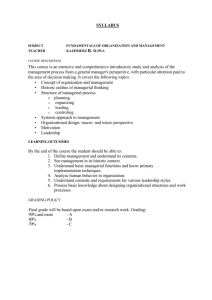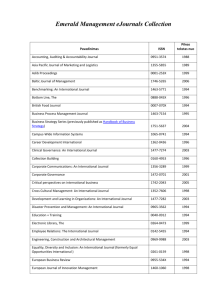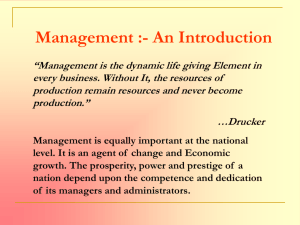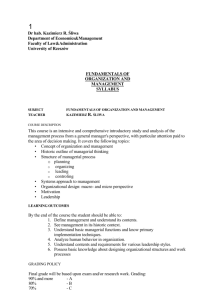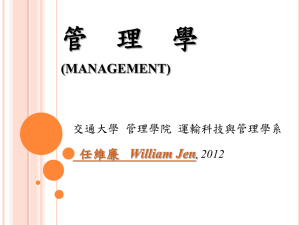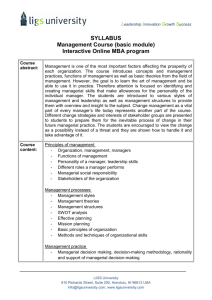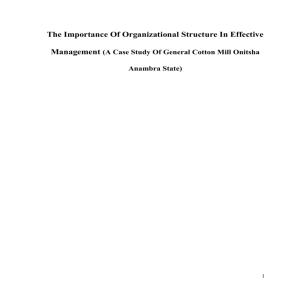Scientific Management
advertisement
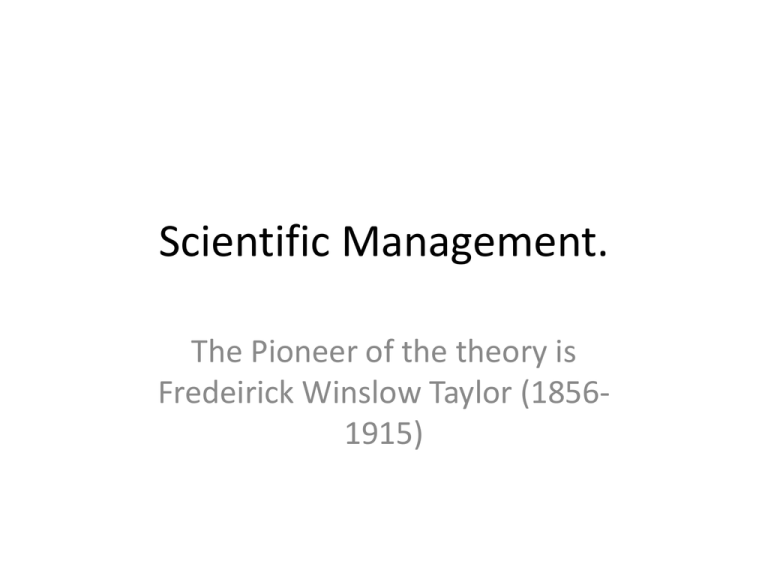
Scientific Management. The Pioneer of the theory is Fredeirick Winslow Taylor (18561915) • He was an engineer by profession. • He is regarded as the father of Scientific Management. • He wanted to create an environment in which economy and efficiency could be achieved for industrial enterprises. • He lived at the mature stage of industrial revolution. • He beilived in applicability of science and principles of science in increasing the productivity ,economy and efficiency. • The maturity of industrial revolution has resulted in expansion and development of commerce and industries • This development has lead to a new kind of managerial problems in industries. • Taylor has observed the managerial process within industries has been characterised by chaos. It was in a chaotic condition. • One problem was the high unit cost. This is because there have not been any real division of managerial functions and routine functions. • He observed that the workers are heavily burden on as he has to decide the way of doing things. The workers were not following scienctific way of doing. But the rule of thumb. • Work methods, tools and procedures were neither standardized nor planed for efficiency. • The choice of method of the work to be done was left to the workers themselves. • There was the need to increase the productivity of the work. • The emergence of a new class of managers. They were asked to face new problems that were not faced by the earlier ones. • His objective has been to fulfill the above industrial needs of more scientific approach to management. • His important book is named as “The Principles of Scientific Management. • His major thesis of the book is that Management rests upon a clearly formulated laws and principles which are universally applicable. • In fact, his ideas can be read or understood as responses to a set of challenges. • 1. The Industrial revolution necessitated the optimal utilization of resources, both human and material. 2. The need to raise the production and efficiency with economy. 3. The need of new management techniques. Goals of Scientific Management • To raise the industrial output by systematic application of methods of science to managerial Problems and Procedures Assumption 1. Industrial Processes can be made open for scientific observation and experiment. The work procedures of labour can be reduced to basic motions to ascertain the longest, shortest and average time needed for each motion 2. The standard time prescribed for each operation can be produced at a designated standard of efficiency and economy. • 3. The workers can be trained by management in the best way/method for achieving industrial objectives. Principles of Scientific Management • 1. Standardization of work method. 2. Scientific selection and training of workers. 3. Equal Division of work between managers and workers 4. Mutual Collaboration between Workers and Managers. The paying systems is based rate system. Extra work will be rewarded. This would erase the conflict between capital and labour forever because it is beneficial for worker as well as the owner of the capital. Evaluation of the Theory • In the context of time in which Taylor lived, it is a revolutionary idea. He has identified Research, standardization, planning , mutual collaboration and control as managerial functions for the first time. This epochal contribution. • It also has given guidelines to develop an effective and efficient organization. • It is believed that Scientific Management ideas have made an snowballing impact on administrative thought. • Demerits • It believes that human being can be motivated only through economic incentives. • The ideas of scientific management and trade unions are incompatible. • This approach is mechanistic



